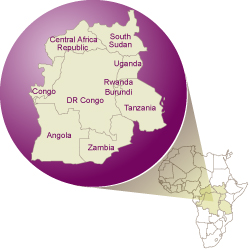There can hardly be any disagreement with the stated goal of the SEC’s Conflict Minerals Rule. Congress directed the SEC to enact rules requiring disclosure about the use of conflict minerals because it believed that the exploitation and trade of conflict minerals from the DRC were helping to finance armed conflict there — conflict characterized by extraordinary levels of violence, including sexual- and gender-based violence. It is undeniable that the Congolese people are suffering unspeakable horrors at the hands of armed groups that continue to battle for power and control in the region.
As part of the legal challenge to the Conflict Minerals Rule, an amicus brief filed by several DRC experts offers insights into the overall impact of the Rule. Professor Marcia Narine (Visiting Assistant Professor of Law, University of Missouri, Kansas City), Ambassador Jendayi Frazer (Distinguished Service Professor, Carnegie-Mellon University and Director of the Center for International Policy and Innovation), and Dr. J. Peter Pham (Director of Michael S. Ansari Africa Center at the Atlantic Council) filed the amicus brief in support of the petition for review although the experts made it clear that their support for the petition arises not out of sympathy with the petitioners’ commercial interests but because of the negative impact of the Rule on the Congolese people.
In the brief, the experts argue that the SEC failed to consider whether the Rule would actually weaken armed groups in the DRC. They then argue that the SEC compounded that error by choosing to draft the Rule and provide guidance that expands the scope of the Rule and increases the cost of compliance resulting in a de facto embargo on minerals sourced from the DRC. The experts go on to conclude that the Rule is having an unintended negative impact on the legitimate mining industry in the DRC and surrounding countries– harming the very people that the Rule was intended to help.
The amicus brief provides a lot of interesting background on the extractive minerals industry in the DRC and describes changes in the market for these minerals since Section 1502 of the Dodd-Frank Act was passed in 2010. The most compelling observation is that many companies have decided not to source any conflict minerals from the DRC or its neighboring countries because of the costs and burdens of sourcing from there – even in a “responsible” way. They also conclude that traceability and tagging efforts are being undercut by corruption, smuggling and other workarounds.
“The Conflict Minerals Rule: The Unintended Consequences of Section 1502 of Dodd Frank” also argues that the Rule has had unintended consequences. The blog post refers to findings in a report of the U.N. Group of Experts Concerning the Democratic Republic of the Congo (“UN Congo Report”), which also concluded that the resistance of companies and industry groups to the costs of diligence and reporting has led to a de facto embargo of minerals from the DRC.
It is important to note, however, that some companies are committed to responsible sourcing from the DRC despite the burdens of the Rule. Some are even investing in legitimate mining operations and improving infrastructure. As a result of those efforts, security and conditions for the affected mines and for the workers and their families are improving. But, not all companies are close enough to the sourcing of the minerals to have this kind of impact. Many are incurring significant expense merely to investigate the facts around their sourcing of minerals. So, as observed by the experts and the UN Congo Report, many of them are concluding that the only efficient and principled response to the Conflict Minerals Rule is to avoid sourcing from the DRC and neighboring countries altogether.
